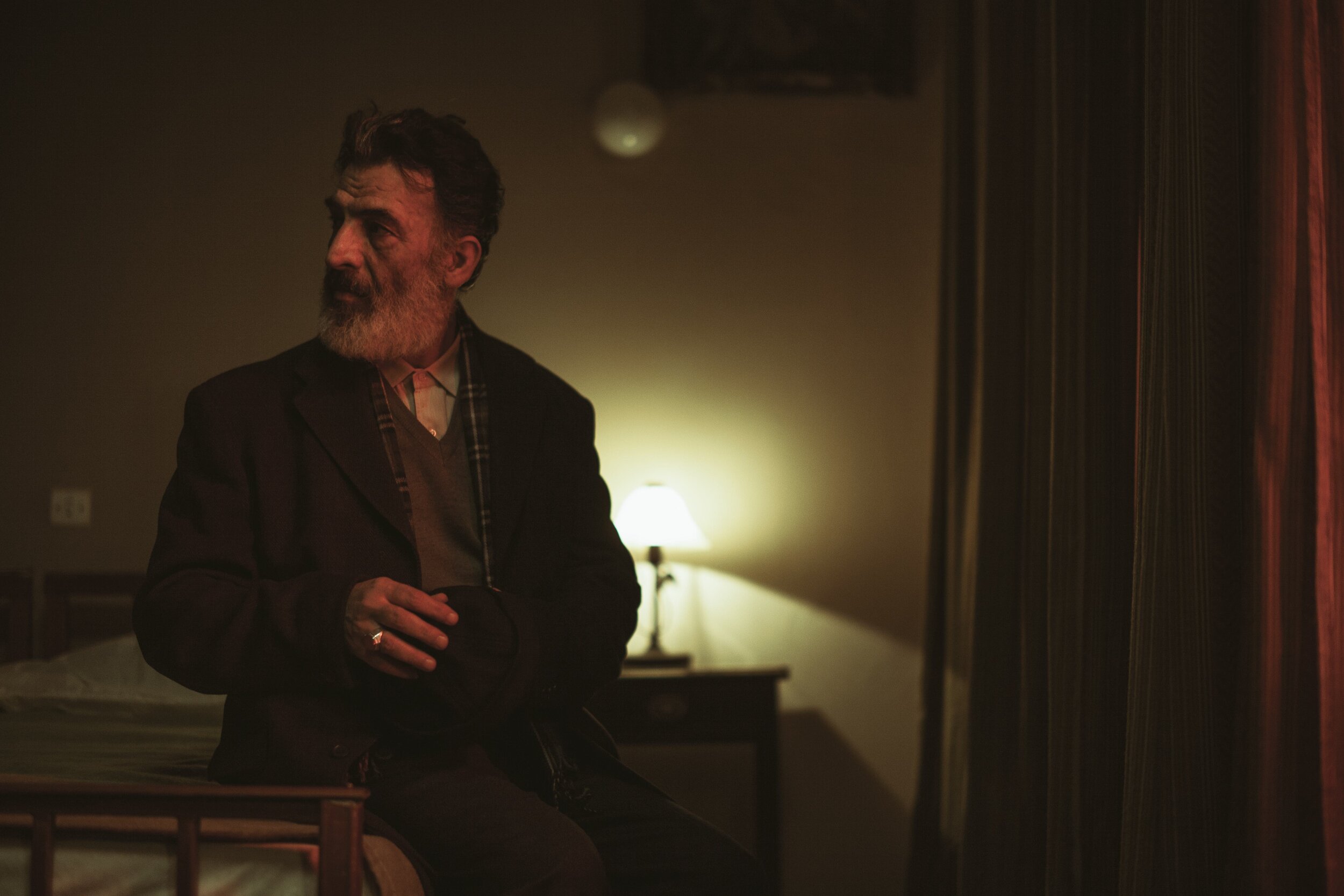Siamak Etemadi
Pari, Siamak Etemadi (2020)
Siamak Etemadi is a Greek-Iranian screenwriter, producer, and film director. His short film Cava d’Oro premiered in competition at the Locarno International Film Festival; his debut feature, Pari, premiered at Berlin, São Paulo, Thessaloniki, Zagreb, and Geneva.
In an exclusive interview with Filmatique, Siamak Etemadi discusses the inspiration behind Pari and how his multicultural upbringing helped shape the film.
Pari is presented as part of Filmatique Talents 2021.
//
FILMATIQUE: Set in contemporary Athens, Pari follows the path of the eponymous character, a dutiful Iranian mother and wife, and she sinks deeper into the urban labyrinth in search of her missing son. How did you first have the idea for this, your feature film debut?
SIAMAK ETEMADI: Pari is the name of my mother. Every few years she visits me in Athens. She is a gentle woman who speaks very few words of English. Each time she comes, I pick her up from the airport. Once, when I was waiting for her in the arrival lounge, I imagined what would happen if I had an accident and couldn't go to the airport or even inform her where I was. What would this woman do alone in a foreign land? I asked her. She said she would move mountains to find me. I knew what she meant. Neither the language barrier nor her natural shyness would stop her from turning every stone in this city to find her son. I wondered what this inner drive is that makes us go past our limits and overcome our inhibitions; our fears. Is it not a desire—a deep craving for something or someone that is not fulfilled? In classical Persian poetry it is called 'longing for the beloved'. This feeling was the starting point for the story.
FLMTQ: Though Iranian by birth, you are currently based in Athens. How would you compare the geographic and cultural specificities between these two locales, and how did you translate your experience to the film's script?
SE: There are autobiographical elements in the story: like Pari, I was once a total stranger in Athens. Like the son's character, I was once a student here. I live in Exarchia, a neighborhood that is the centre of political dissent in the city, and so on. My identity is as much shaped by my Iranian roots as it is by my life in Greece. And these experiences are reflected in the story.
On the one hand, there are cultural values from my Iranian background: its Islamic state, as well as its classical Persian poetry—with themes of love, longing, and rebirth. On the other hand, there is this Greek culture and setting: its Western freedoms and urban energy, along with its ancient tragedies and their psychological insights. A key scene in the film—when Pari is finally given crucial information about her son—was inspired by Oedipus meeting Tiresias and takes place in a stone theatre. I feel that the clash and merge of these cultures inside Pari can reflect a crucial experience of our times.
Pari, Siamak Etemadi (2020)
FLMTQ: Pari features a stunning performance by Melika Foroutan, whose finely attuned expressions and layers of emotions anchor the narrative. Can you discuss your casting process for this film? How did you encounter Foroutan, and how did you work together to bring her character to life?
SE: It was a challenging process. Pari is in every single scene. She goes through a lot and has a total transformation. Together with Melika, we followed the stages that the character goes through. First, we needed to place her in the specific social setting that Pari comes from. That included weeks of practice to wear the chador and be able to go through the daily chores of a traditional Iranian Muslim housewife, wearing it. This work shaped a lot of her physical performance, which in turn had to evolve, as she is pulled into her unexpected adventures in Athens. We also worked a lot on her language and the specific English that she speaks as she is forced to communicate with the Greeks. The final stage was the esoteric world of Pari and her psychological states that became more of discoveries for both of us.
As the shooting days progressed, Melika got so familiar with the character that some of her dialogue—and even actions in many scenes—changed, making them more real and immediate. Her commitment and courage made the difference. Even the physical task of shooting on location in the middle of the winter for hours on end was exhausting. I felt that I had a partner on all levels and it helped a lot.
FLMTQ: Who have been your greatest cinematic inspirations, living or dead? What films, if any, did you draw upon as inspiration during the making of Pari?
SE: They are very different and varied. From European masters to American auteurs, and all the way to Kurosawa and Masaki Kobayashi. In my youth I watched a lot of American action movies but the films that deeply influenced me were Kurosawa’s masterpieces along with rare European gems that were allowed to play on Iranian TV. The one that stood out was A Man Escaped by Robert Bresson. For me, the movie was a perfect combination of suspenseful story-telling and fiercely honest and innovative filmmaking. Another very influential film for me has been Breaking the Waves by Lars Von Trier, with unabashedly emotional and melodramatic story-telling dealing with disturbingly ambiguous situations and deep existential themes.
Pari, Siamak Etemadi (2020)



